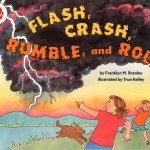
Readers & Thinkers: The 2015 Nobel Prize in Economics. How Much Do You Want It?
Posted by ludw1086 on Oct 12, 2015 in Readers & Thinkers | Comments Off on Readers & Thinkers: The 2015 Nobel Prize in Economics. How Much Do You Want It?Dear All:
Well, who won?
The Nobel prize for economic sciences for 2015 was announced today, October 12, 2015. It went to Angus Deaton.
Deaton is 69 years old and was born in Edinburgh, Scotland. Much of his early work in consumption theory was done while a professor at the University of Bristol. He is now a Professor of Economics and International Affairs at Princeton University. He obtained his B.A., M.A., and Ph.D. from Cambridge University.
The name Deaton isn’t a name everyone knows, but within academic economics, his name is very well known. Anyone who has taken a course in microeconomics or public economics has probably seen his name.
So what did this guy do to make him so Noble?
The Nobel committee wrote that he received the prize “for his analysis of consumption, poverty, and welfare”.
Consumption makes up a large part of our economy. Humans speak a lot about making it rich, or accumulating vast wealth, or getting the large bonus, but ultimately they care about some sort of consumption; whether it’s for themselves, their kids, or for their friends.
Understanding consumption behavior is important for economists for a variety of reasons. It helps economists understand how different economic policies affect the welfare of individuals. For example, it helps economists understand how a tax increase on a particular good will affect the demand for the good, the tax revenue collected from that good, the impact on the demand for other goods, and the overall welfare of consumers depending on which good is taxed. Consumption behavior can also help economists understand if societies are improving or declining over time.
Deaton helped improve our estimation of consumer demand functions. A consumer demand function is an economist’s attempt to model human consumption behavior with an equation. Thus, economists will express the consumption of each product by each consumer based upon some general characteristics that affect a consumer’s decision to purchase the product. The most obvious characteristics are the price of that good relative to other goods and the consumer’s income level. Deaton and Muellbauer introduced a demand function for goods that corresponded to common sense and was easy to estimate from actual data.
In 2011, Kenneth Arrow (Nobel), Doug Bernheim, Martin Feldstein, Dan McFadden (Nobel), and Bob Solow (Nobel) cited this as one of the most important articles published in the American Economic Review in the last 100 years.
Later in his career, Deaton studied issues related to the permanent income hypothesis (Milton Friedman) and life-cycle theory (Franco Modigliani). The common intuition of economists is that changes in consumption spending should be “smoother” than changes in income, because rational individuals make consumption decisions based on changes in their permanent income. That is, if I get a salary bonus this year, my consumption won’t jump up along with it, since I will make consumption decisions based on my lifetime expected income. I will realize that I won’t get this bonus every year, thus, I’ll spend part of it so I can keep some type of consistent level of living. The data on total consumption in most economies confirms this theory.
Deaton and John Campbell found that permanent income is very volatile, more so than current income, and concluded that, in theory, consumption should be more volatile than current income. Since the data do not agree with Campbell and Deaton, some people call this the Deaton paradox. John Campbell told me today that “The Deaton puzzle on consumption volatility is still very relevant, but in more recent years it has been absorbed into a broader macro/finance literature on the relation between consumption, interest rates, output, and underlying macroeconomic shocks.”
So what about the Nobel choice?
Angus Deaton is known in economics for his work with consumption theory. The Nobel prize committee noted his work on poverty, which was done later in his career. Even though his work on poverty wasn’t the real reason he won the prize (ignoring political motivations), one of his papers in this area illustrates how economists can be insightful in finding answers to their questions. Economists must work with real-world data and aren’t afforded the luxury that other scientists have of performing controlled experiments. Thus, they must often think of clever ways to use the data they do have.
Many people had speculated that families spend more resources on boys than girls in developing countries, hence improving the boys’ lifetime outcomes. The easy way to study this problem is to look at the spending on boys and girls, but that data wasn’t available. Deaton came up with a clever way to analyze this. He looked at the adult consumption patterns when a child was born. The idea was that if consumption declines more when a boy is born, this would indicate that adults spend more on boys. Deaton’s analysis found no difference in adult spending patterns whether a boy or a girl was born.
So is that it?
It should always be remembered that even though Deaton did some great research to help us understand consumption, there were many other researchers that contributed and continue to contribute to our understanding of consumption behavior. Probably most relevant is John Muellbauer, Deaton’s co-author on his most well-known paper. Did the Nobel Committee not have his phone number?
I spoke with John this morning and he was very happy about the award. “I’m thrilled about this triumph for evidence-based economics.” He said that when he and Deaton started working together in 1971, he never imagined the impact the work would have. “They still use our specification of how consumers allocate their spending basket today, especially in agricultural economics.” He went on to say in a charming British accent, “Working with Deaton was a happy time. Angus is a wonderful writer and a deep thinker.”
I spoke to one of Deaton’s colleagues and someone who studies consumption behavior today who said that he “…benefited immensely from his [Deaton’s] work.”
John Campbell was thrilled by the prize. “Angus is both an old friend and one of my heroes in the economics profession. For over 30 years I have admired and have tried to emulate the way he thinks about models and data in relation to one another.”
A hot trend in economics is to conduct a little field experiment and make broad generalizations about human behavior. Deaton has been very critical of the new trend in development economics to infer too much from the experiments. Common sense oftentimes is enough to understand the problem with this type of research, but Deaton offers a more comprehensive discussion of the problems.
For more information on the winner:
http://www.nobelprize.org/nobel_prizes/economic-sciences/laureates/2015/press.html
Congratulations to Deaton, his pursuit of knowledge, and the armies of other researchers who walked with him.
Enjoy!
Ludwig
P.S. Feel free to email me your thoughts and indicate whether you wish them to remain anonymous or not.
October 12, 2015






